- Home
- Karen Kingsbury
Fifteen Minutes: A Novel Page 2
Fifteen Minutes: A Novel Read online
Page 2
Six years ago, Chandra was that wide-eyed singer, working at a state-subsidized day-care center and taking college classes at night. Nineteen years old with a dream bigger than Texas. What did she know about Fifteen Minutes or where it might lead, where the journey would take her?
Chandra closed her eyes and saw herself the way she was back then. No one had been more excited about her audition than Chandra’s parents. They were longtime hard workers, both of them office managers for sales firms in downtown Birmingham. Martin and Muriel grew up in the projects, too poor to eat some days. They spent their lives trying to give their kids—Chandra and her brother, Jalen—everything they never had. Jalen’s dream had been soccer. He was playing now, a senior at Liberty University in Virginia. But only because her parents had worked years of overtime to pay thousands of dollars in club soccer fees and private coaching and gym memberships. It was the same for Chandra—only her passion wasn’t soccer, it was singing.
She opened her eyes and looked at her mother’s tombstone. You used to tell me I was born humming. Remember that? You gave me every advantage, Mama. It was true. Chandra took voice lessons from the best teachers. She’d attended a private arts school on the south side, and when she wrote her first song, her parents took her to Atlanta and had it produced by a legend known for turning out R&B hits.
Nothing opened the door to her singing career the way Fifteen Minutes did. Chandra blazed through the audition process; even with the show’s manufactured drama, there was never really any contest. On the show’s finale, when dapper host Kip Barker smiled at the cameras and rattled off the famous line “The next fifteen minutes of fame go to . . . Chandra Olson!” there wasn’t one surprised person in the audience or at home.
“You might be the best singer to ever grace the Fifteen Minutes stage.” That’s what longtime judge Cullen Caldwell had told her, and the comment was plastered across the Internet, everywhere from the Today show to People magazine.
Chandra remembered a private moment with her mother a week later. “You realize how big this is, baby girl?”
Beneath the warmth of her mother’s words, Chandra’s heart swelled. She hugged her mama for a long time. “It’s big.”
“It’s more than that!” Her mother put her hands on either side of Chandra’s face and looked deep into her eyes. “Fifteen Minutes is the biggest show on television, baby. And you’re the best singer they’ve ever seen! God’s gonna use you, child. He’s gonna use you like none of us can begin to imagine.”
Her mama was right about Fifteen Minutes. The show had been on the air for ten years, and though other voice talent programs competed for a share of the market, nothing compared to Fifteen Minutes. Between the judge’s comment and her mother’s praise, the future seemed brighter than the sun, Chandra’s potential unlimited.
Anyone could see the success ahead.
But none of them saw coming what happened two years later. The second autumn after Chandra’s win—with her first album topping the charts and her fame far surpassing what even Cullen Caldwell expected—an Alabama stalker stepped into the picture. He found Chandra on Facebook and asked for a loan. Money to help him and his mother buy a house. Chandra let the comment pass.
The request quickly became harassment, with the guy posting daily demands for money. His most chilling post was also his last. What if something happened to your parents, Chandra? Maybe that would get your attention!
Chandra blocked him from her Facebook page and filed a report with the Birmingham police.
“The guy’s annoying,” the Birmingham officer told her. “But anyone can make a Facebook page. We can’t even prove he’s a guy or that he lives in Alabama. People like this are rarely serious.” The officer added that there wouldn’t be enough hours in the day to investigate every crazy threat made against a celebrity. “It comes with the territory.”
Yes. It came with the territory. Another aspect of being in the public eye. Chandra tried to believe the officer’s words. The threat was nothing. Her concert schedule rolled on, and Chandra talked to her mother every night before she took the stage, same as always. Once she even shared her fears about the guy.
“I should get you a bodyguard, Mama. I have one.”
“Don’t be silly.” Her mama’s calm never wavered. “God’s in control, baby. Me and your daddy are fine.”
“I wish you were with me.” Fear made the drafty wings of the arena colder than usual. “You and Daddy could come out on the road.”
“Aww, Chandra.” Her mom’s smile rang through her words. “When we retire we’ll be front row at every show.”
Chandra had two minutes before her first song. “I love you.”
“I love you, too. Do me a favor, baby.”
“What?”
“Out there tonight, picture me and your daddy in the front row. We’re with you, baby girl. We’re always with you.” Her emotion got ahead of her. “I’m so proud of you, Chandra.”
Her mama’s confidence kept Chandra sane, helped her forget the stalker’s awful comment. But one warm night later that week, her parents pulled into their driveway after a church service and climbed out of their car. One of the neighbors was outside getting her mail and saw everything. Chandra’s parents were laughing and talking, full of life. Her father had just taken her mother’s hand when a spray of bullets exploded from the front porch, ripping through their bodies and dropping them to the ground. They were dead before the neighbor could call for help.
The man turned out to be certifiably insane, an escaped patient from a mental hospital. He waited on the Olsons’ front porch until the police arrived, at which point he handed himself over and readily admitted to the killings. “I wanted Chandra’s attention,” he told police.
It worked.
Life would forever be measured as before and after the shootings. No question, a part of Chandra was buried right here with her parents. In the wake of their murders, she took two months off and became a recluse, handling her parents’ affairs, afraid to leave their house. Eventually she hired two additional bodyguards and returned to the limelight.
She had no choice. The stage owned her now. It was where she belonged.
Questions plagued her then the way they did four years later, here at the cemetery. What was the point of fame and celebrity? All the record sales and accolades and awards? The money and houses and vacations? None of it could take her back to that moment, her mother’s hands on her cheeks.
Her parents’ faith had been strong and foundational, a key to Chandra’s life before Fifteen Minutes. Now only one Bible character allowed Chandra a sense of understanding, a point of relating.
Solomon.
The king who had everything but finished his days believing the most desperate of thoughts—that all of life was meaningless. A chasing after the wind. Chandra had read the book of Ecclesiastes again on her Bible app during the flight here, and once more she had found her life verse, the only one that applied, Ecclesiastes 2:17, a nugget of sad truth tucked in the mix of a host of depressing Scriptures. She remembered the verse word for word.
So I hated my life, because the work that is done under the sun was grievous to me. All of it is meaningless, a chasing after the wind.
Her newest album was number one on iTunes, and she’d been asked back to Fifteen Minutes. This time as a judge. She had ten million Twitter followers and daily requests for movie and book deals. But here, in the warmth and quiet of the cemetery, she could only agree with King Solomon. Where were the real winners? Life was meaningless . . . a chasing after the wind.
All of it.
She opened her journal and began to write. The lyrics came easily, pouring from the gaping holes in her heart. It would be a hit, she was sure. Even that was meaningless. Only one thing kept Chandra going, kept her engaged in the daily trap of celebrity and fame, through concerts and autograph seekers and handlers and bodyguards. It wasn’t her new role as judge on Fifteen Minutes or the countless hopefuls heading out to au
dition this week.
It was the twenty finalists.
The ones whose lives were about to change forever. The unsuspecting contestants who would never be the same, who could never go back to life the way it had been. Just maybe among them was a singer like she used to be, someone with faith and family and a quiet, happy life.
If she could warn just one about the false illusion and prison of fame, she would do it. In the process she might find something she’d lost four years ago with the death of her parents. The one thing celebrity could never give her. The one thing worth chasing.
Meaning.
chapter 1
Zack Dylan held a steaming mug of black coffee in one hand and his Bible in the other. He stood on the wraparound wooden porch of his parents’ farmhouse and watched a pair of Arabian horses run through the Kentucky bluegrass. The hundred-acre horse farm had been in the family for six generations.
He breathed deep the sweet July air and set his things down on the old wooden table. Four metal-back chairs made up the seating. Zack took the one with a view of the horses. This had been his routine lately. Taking his coffee out here and reading his Bible. He loved Jesus more than his next breath. He could feel Him close as skin. But these days he needed all the wisdom he could get. His girlfriend, Reese Weatherly, would be here in half an hour.
Their last chance to hang out before he left for Atlanta.
The Arabians stopped as if they could sense something changing, something big about to happen. Then like the wind they took off again, flying through the grass, a song in motion. Zack leaned his forearms on the old table and watched them run. His great-great-grandfather had raised thoroughbreds and in 1934 the Dylans’ horse farm had produced the winner of the Kentucky Derby. A sketch of the champion with a bouquet of roses formed the farm’s logo.
Dylan Champion Horse Farm.
A farm doomed to foreclosure if something didn’t change.
Zack let the history hit him again. Sometime in the 1950s the family stopped raising costly thoroughbreds and switched to Arabians. Now dressage riders boarded their horses here and rented time in one of the three arenas. Faith, family, and Southern horse farming. Danville, Kentucky, born and bred. The problem wasn’t the business. It was the tornado that had come through and damaged the barns and stables in January.
The damage didn’t touch the house, but the insurance didn’t cover the barns and stables. Liability, yes. Storm damage, no. The operation was too tight to justify that sort of insurance. Especially when six years ago a different tornado had done similar damage. Back then the family’s insurance had been comprehensive. After the claim, covering the outbuildings against storms wasn’t possible.
From the moment the storm passed, Zack and Duke, his fifteen-year-old brother, had worked alongside their dad to fix the damage. They needed additional lumber to replace the roofs on the outbuildings. Tens of thousands of dollars in supplies. Without that, the buildings had stayed in disrepair and most people had moved their horses to other facilities. The Dylans spent more money than they made and the tension around the kitchen table grew every day.
On top of that Zack’s sister, AJ, had been sick. She had Down syndrome and juvenile arthritis, an especially severe kind. A host of other complications had left doctors convinced she wouldn’t live another ten years.
Zack exhaled, feeling the weight of his family’s troubles. Regardless of the broken buildings and dwindling bank accounts, this was his family’s horse farm. Sure Zack had other dreams, songwriting, even singing. Those were tangents, really. Hobbies. More than anything he wanted to see the farm up and running, wanted to bring in new Arabians and even Derby contenders. Put the Dylan Champion Horse Farm on the map once more. Horse farming was supposed to be his and Duke’s legacy. The fabric of their past, the lure of their future.
A creaking sound made him look over his shoulder. The door opened and Grandpa Dan stepped out, most of his weight on his black cane. “Zack.”
“Sir.” He pushed his chair back and stood.
His grandpa’s steps were slow, Parkinson’s disease stealing a little more of his freedom every week. A smile lifted his weathered face. “Beautiful morning.”
“Like a painting.” Zack waited.
The porch boards protested with each step. His grandpa reached him and put a shaky hand on his shoulder. The old man had lived in the guest house out by the largest arena before the tornado hit. Now he stayed in the guest room on the main floor. He spent most of his time here, on the porch overlooking the farm, staring out at images from decades gone by.
The old man struggled to his seat, exhaled slowly and leveled his gaze at Zack. “You’re leaving. Is that what I hear?”
“I am. Yes, sir.” Zack leaned closer, took his grandfather’s black cane and rested it against the porch railing. He sat back down. Neither of them said anything for a while, the morning breeze warm and easy between them.
Zack broke the silence first. “How are you?”
“Wonderful. Never better.” The old man’s eyes looked deep and full. “Good Lord gave me another day. Got nothing to complain about.” His look grew serious. “AJ’s coughing more. I’m worried about her.”
“Me, too.” Zack studied his grandfather. Stoic, strong. A throwback from another era. Complaining wasn’t an option. He could be drawing his last breath and he’d be more concerned with those around him.
“I hate when she’s sick. She can’t get on a horse coughing like that.”
Zack patted the man’s leathery hand. “She needs a different doctor, someone from Louisville.”
“Yes.” The old man eyed him, sizing him up for a long moment. “You have some time?”
“Yes, sir.” Zack had expected this. Dreaded it.
His grandfather looked deep into his eyes, right through him. “The audition. Fifteen Minutes.”
“Yes?”
“You know how I feel about it.”
“I do. Daddy told me.” Zack took a swig of coffee. His father’s words rang in his heart constantly this past week. I believe in you, son. No harm in trying out. But you know your grandfather. Dylan men don’t chase fame . . . they tend the farm and keep up tradition. They get a second job and buy the wood and fix the buildings. They find a way.
Zack forced his dad’s words from his mind. He respected his father, but still he was going to Atlanta. He couldn’t be afraid of success. The idea was ridiculous. He sipped his drink more slowly.
His grandfather gazed back at the front door, his eyes a steely reflection of some yesteryear. Gradually he found Zack again. “Why are you going?”
“What if I’m supposed to go?” Zack felt his heartbeat quicken. He set down his coffee and leaned back in the chair. His words came measured, unrushed. “Maybe God could use me better on a stage somewhere.” He tried to smile. “I could pay off the farm. Daddy wouldn’t have to work so hard.” Zack paused, feeling the weight of the situation. His father had looked older lately, constantly worried. He thought of something else. “We could get better doctors for AJ. Duke could go to college like he wants to.”
“A lot of good men get lost on a stage.”
“Not me.” Zack folded his hands on the table and studied his grandfather’s eyes. “You know me, Grandpa. If I make it . . . I won’t get lost. Not ever. God loves me too much for that.” Nothing stood more certain in Zack’s mind. He watched the Arabians flying across the Kentucky grass. Why was his grandpa so worried? He would go with God’s blessing, sing for His glory, and one audition to the next he would walk only through the doors that the Lord Himself opened. If singing on Fifteen Minutes got in the way of him and God, he’d pray to be sent home.
It was that simple.
His grandpa watched him. “You’re a Dylan, and you’re a good boy.” The old man searched his eyes, processing. “But if they keep you, it’ll change things, Zack. Fame always does.” He hesitated, his tone kind. “God-fearing men . . . we live a quiet life.”
Zack didn’t argue. He re
spected his grandfather’s opinion but nothing would change his mind. He had prayed for God’s will and he was going to Atlanta. Besides, was he supposed to go his whole life untested? What good was his faith if it couldn’t see him through whatever lay ahead?
“What troubles me”—the old man drew a shaky breath, and for the first time a flicker of fear showed in the lines on his forehead—“is your motive, son. What do you hope to gain?” He waved his hand around. “Yes, you want to pay off the farm. Rescue your tired father. I admire that, Zack, I do.” He let the moment breathe. “When I was your age I worked two jobs. Three, even. You could do that, son. Why the show?”
“I need an answer.” Zack didn’t blink, didn’t waver. He breathed deep, the certainty of a lifetime filling his heart. “God gave me my voice, Grandpa. I have to at least try.”
“You sing at church.” Sincerity softened his eyes. “With the teens. They love you.”
“Yes.” Zack stared out at the far reaches of the field, at the Arabians standing alert now in a tight herd. “It’s just . . .” He turned to the old man. “What if I could shine brighter for God on a bigger stage? In front of the whole world?” A growing passion filled his tone. “Country music, Grandpa. That’s as big as it gets. People will see my faith and they’ll want Jesus. They will.”
His grandfather stayed quiet, his eyes never leaving Zack’s. “God doesn’t measure big the way people measure big. Jesus had just twelve followers.” He blinked a few times. “Fame is a demanding mistress.”
Zack hesitated out of respect. Most people he knew were excited for him, wishing him well. But his family hadn’t gotten behind him. He swallowed his frustration. “I’m twenty-three. I’ve waited a long time to try this.”
“Just remember the Derby days.” His grandpa’s eyes narrowed, more serious. “Some people never find their way back home.”
Zack had heard the story often. One of his great-grandfather’s friends had owned Kentucky Derby winners also. Only the guy had gotten caught up in a party crowd from New Jersey and lost his life to a heroin addiction. It was the only brush with fame Zack’s grandpa knew about and it hadn’t ended well. Which explained his warning. But that didn’t apply to Zack. He patted his grandpa’s hand. “You’re assuming I’ll make it.” A slow, nervous laugh slipped through his lips. “A hundred thousand people will try out for the show.” He paused. “I could be home by Monday. If so, I’ll get another job. I promise.”

 Shades of Blue
Shades of Blue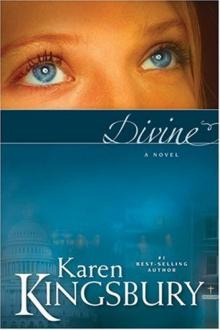 Divine
Divine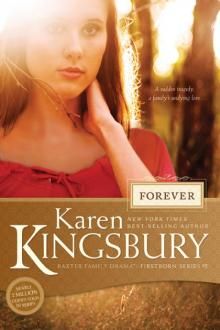 Forever
Forever Summer
Summer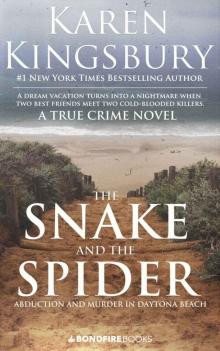 The Snake and the Spider
The Snake and the Spider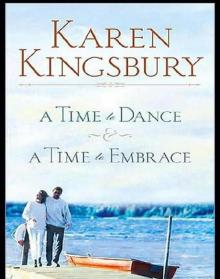 A Time to Dance
A Time to Dance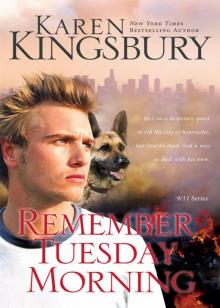 Remember Tuesday Morning
Remember Tuesday Morning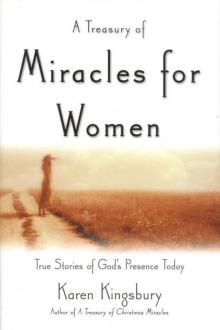 A Treasury of Miracles for Women
A Treasury of Miracles for Women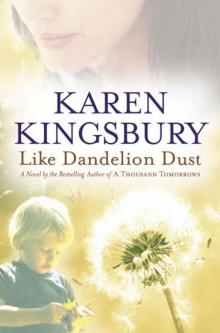 Like Dandelion Dust
Like Dandelion Dust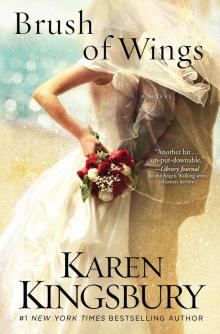 Brush of Wings
Brush of Wings The Tuesday Morning Collection
The Tuesday Morning Collection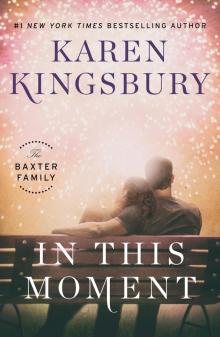 A Moment of Weakness
A Moment of Weakness Ever After
Ever After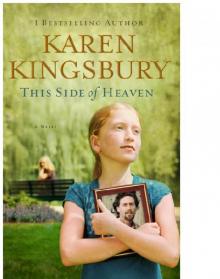 This Side of Heaven
This Side of Heaven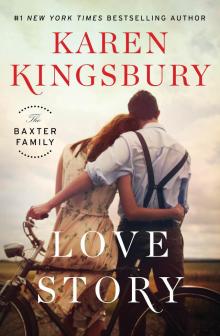 Unlocked: A Love Story
Unlocked: A Love Story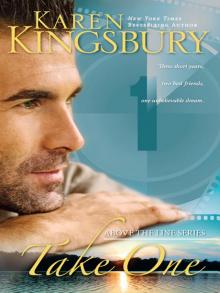 Take One
Take One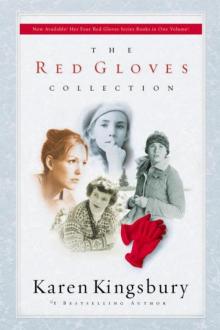 The Red Gloves Collection
The Red Gloves Collection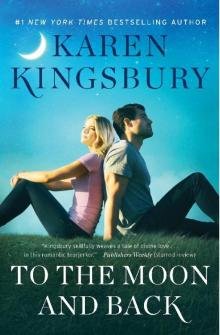 To the Moon and Back
To the Moon and Back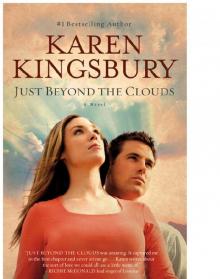 Just Beyond the Clouds
Just Beyond the Clouds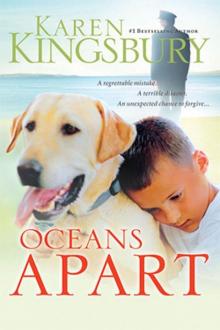 Oceans Apart
Oceans Apart A Baxter Family Christmas
A Baxter Family Christmas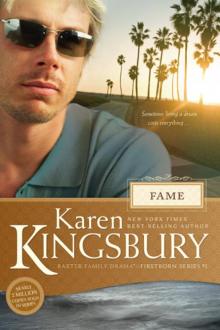 Fame
Fame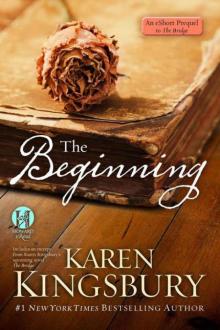 The Beginning
The Beginning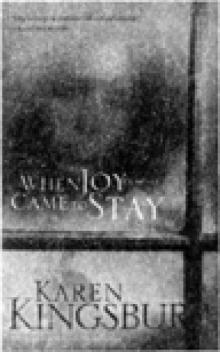 On Every Side
On Every Side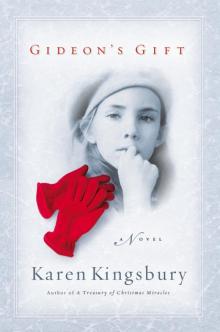 Gideon's Gift
Gideon's Gift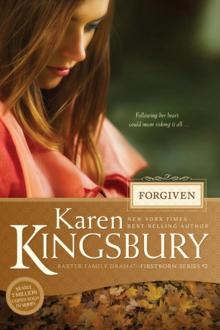 Forgiven
Forgiven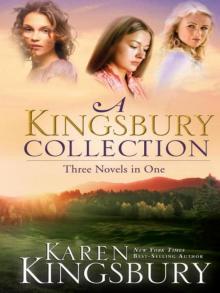 A Kingsbury Collection
A Kingsbury Collection Found
Found Family
Family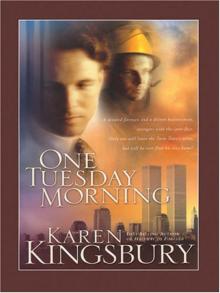 One Tuesday Morning
One Tuesday Morning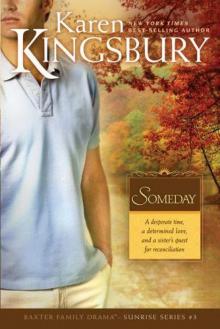 Someday
Someday Take Three
Take Three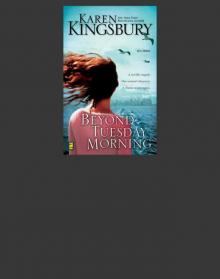 Beyond Tuesday Morning
Beyond Tuesday Morning Unlocked
Unlocked Take Four
Take Four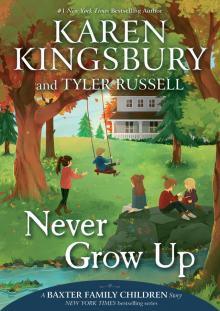 Never Grow Up
Never Grow Up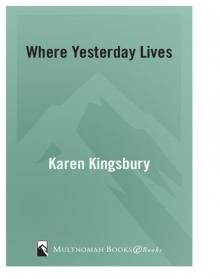 Where Yesterday Lives
Where Yesterday Lives Two Weeks
Two Weeks When Joy Came to Stay
When Joy Came to Stay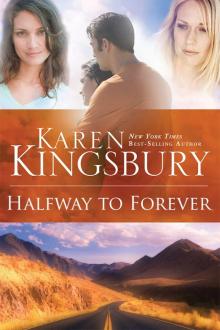 Halfway to Forever
Halfway to Forever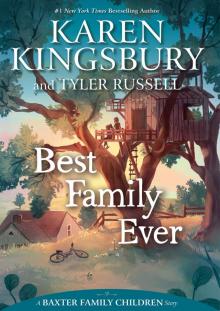 Best Family Ever
Best Family Ever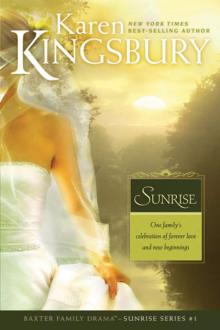 Sunrise
Sunrise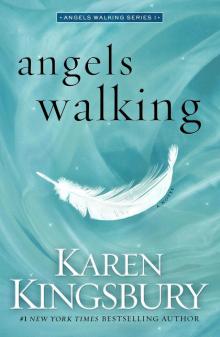 Angels Walking
Angels Walking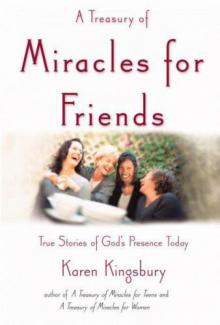 A Treasury of Miracles for Friends
A Treasury of Miracles for Friends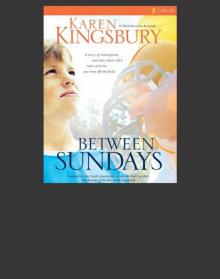 Between Sundays
Between Sundays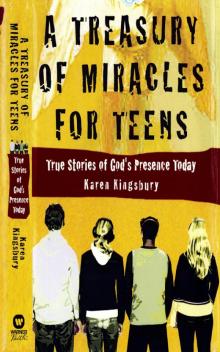 A Treasury of Miracles for Teens
A Treasury of Miracles for Teens A Thousand Tomorrows / Just Beyond the Clouds
A Thousand Tomorrows / Just Beyond the Clouds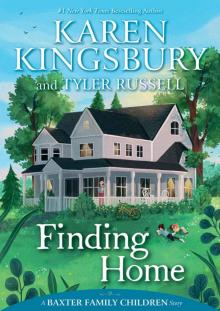 Finding Home (A Baxter Family Children Story Book 2)
Finding Home (A Baxter Family Children Story Book 2)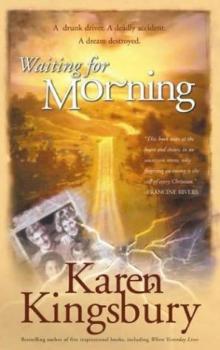 Waiting for Morning
Waiting for Morning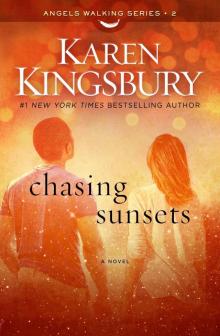 Chasing Sunsets
Chasing Sunsets Two Weeks: A Novel (The Baxter Family)
Two Weeks: A Novel (The Baxter Family) Coming Home
Coming Home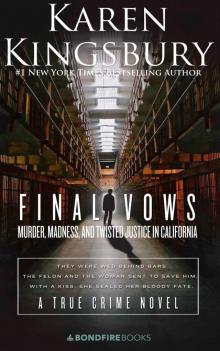 Final Vows
Final Vows Sunset
Sunset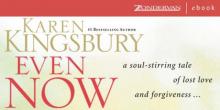 Even Now
Even Now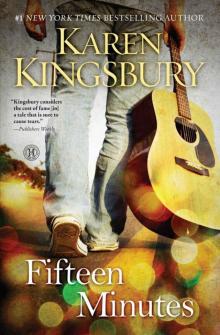 Fifteen Minutes: A Novel
Fifteen Minutes: A Novel Love Story
Love Story The Bridge: A Novel
The Bridge: A Novel One Tuesday Morning & Beyond Tuesday Morning Compilation
One Tuesday Morning & Beyond Tuesday Morning Compilation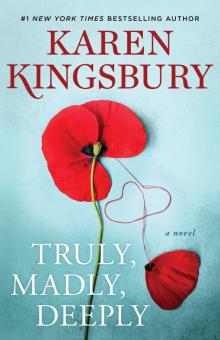 Truly, Madly, Deeply
Truly, Madly, Deeply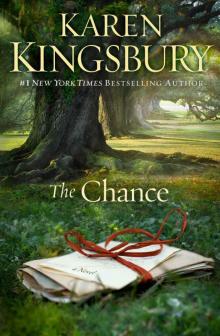 The Chance: A Novel
The Chance: A Novel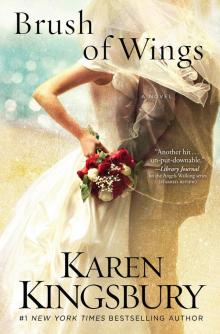 A Brush of Wings
A Brush of Wings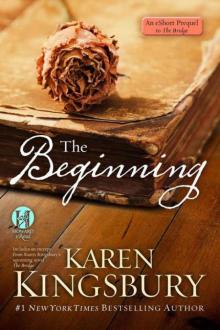 The Beginning: An eShort Prequel to the Bridge
The Beginning: An eShort Prequel to the Bridge A Thousand Tomorrows & Just Beyond The Clouds Omnibus
A Thousand Tomorrows & Just Beyond The Clouds Omnibus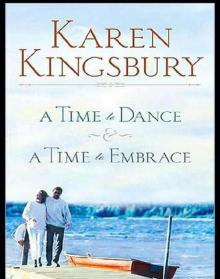 A Time to Dance/A Time to Embrace
A Time to Dance/A Time to Embrace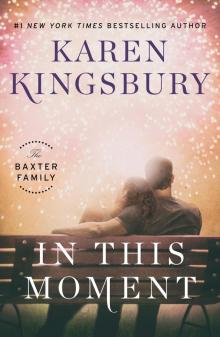 In This Moment
In This Moment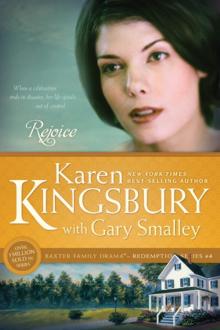 Rejoice
Rejoice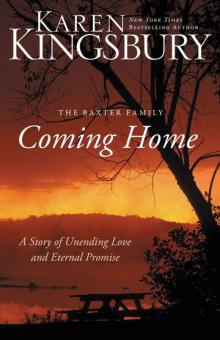 Coming Home: A Story of Undying Hope
Coming Home: A Story of Undying Hope